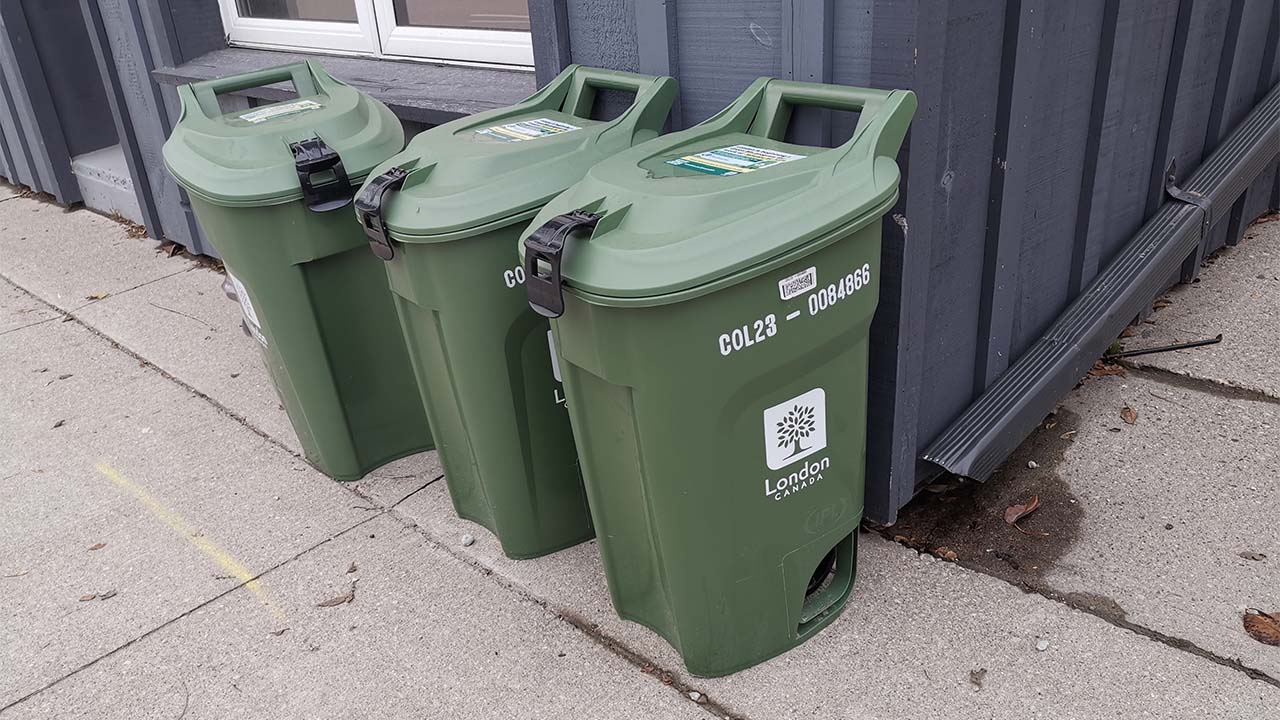London green bin program launching this month
 CREDIT: MAURICIO PRADO
CREDIT: MAURICIO PRADOThe green bin program will launch on Jan. 15.
On Jan. 15, London will officially launch its green bin program. According to the City of London, approximately half the weight of residential garbage currently comprises of organic components, including food scraps, ruined food, and soiled paper.
“The green bin program is a way to take a material that right now is considered an item for garbage, food waste primarily,” said the City of London’s Director of Climate Change, Environment and Waste Management, Jay Stanford. “It is a way to take a waste item and turn it into a valuable resource.”
He said this effort aims to lessen greenhouse gas emissions, such as methane, produced when organic material decomposes in a landfill. The City is also seeking to turn waste into a new resource that feeds local farms and soils, and extends the life of the local landfill by keeping organic materials out.
“The green bin program has some similarities to recycling but also many differences. Londoners will receive a guide with their green bin describing how to use the program, what materials can be collected, and some tips and tricks on how to participate,” Stanford said.
Stanford said that as of Dec. 2023, over 120,000 families have received green bins. The delivery process started in mid-October and took roughly two months. Residents can now gather and keep organic materials until they are collected by placing green bins at the end of their driveways. Residents of townhome complexes storing their recyclables and trash outside are eligible for green bin distribution.
“Recycling is commonplace in London. Londoners are very used to what materials go into the blue box. These materials for the green bin are typically materials that have been in the garbage in London for a long time,” Stanford said.
Stanford said people can transfer the contents of their kitchen containers to their green bins after the containers are full. While not necessary, using certified compostable liners in your kitchen container and green bin is preferred.
“Londoners are quite excited that the program is finally arriving here in London. We have had many positive comments,” Stanford said. “Along with the arrival of the green bin program, there will be a change to bi-weekly garbage pickup.”
Stanford said the City has received many questions about how the program will work and how items like pet waste will be handled.
“Pet waste is an item that cannot go in the green bins. Householders will be asked to hang on to those products for four to six extra days under the bi-weekly garbage collection system,” Stanford said.
According to Stanford, this project will significantly help local farmland because the “rich materials in every green bin” will be used as organic compost.
“Something that once was going to the landfill site will now be placed back on farmers’ fields,” Stanford said. “Currently, we’re at 45 per cent waste diversion in London. This will help increase diversion by upwards of 55 to 57 per cent.”
The green bin materials collected in London will head to a composting company called Convertus, located in London. Convertus is turning the materials into a compost product or a product that could go on to farm organically rich fields.
“It will all be done in London for London,” Stanford said.

















